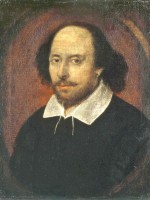Peter Brook is a Actor, Director, Scriptwriter, Producer and Editor British born on 21 march 1925 at London (United-kingdom)
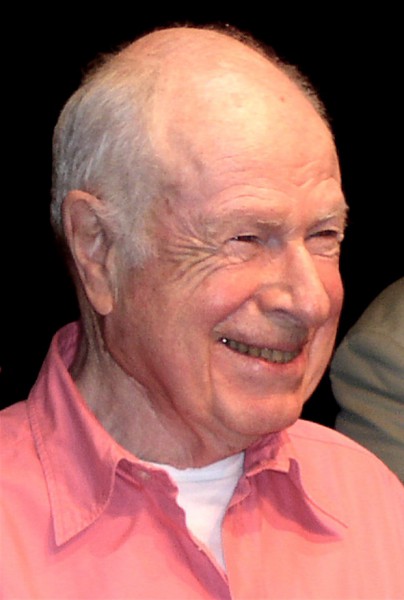
Peter Brook, né le 21 mars 1925 à Chiswick à Londres, est un metteur en scène, acteur, réalisateur et écrivain britannique.
Artiste novateur dans ses interprétations des pièces du grand répertoire international, et plus particulièrement des classiques de Shakespeare, il est le théoricien de « l’espace vide ». Depuis le milieu des années 1970, sa compagnie est en résidence à Paris au Théâtre des Bouffes du Nord.
À l'âge de 5 ans, il met en scène en marionnettes Hamlet. Il commence sa carrière théâtrale en 1942 par une adaptation de The Tragical History of Docteur Faustus de Christopher Marlowe. Il monte à la fois des classiques (dont Shakespeare) et des pièces d’auteurs contemporains comme Jean Anouilh, Jean-Paul Sartre, Jean Genet, André Roussin et des auteurs d’avant-garde tel Peter Weiss. Il veut rapprocher le cinéma et le théâtre. Peter Brook s'inscrit, comme Giorgio Strehler ou Jean Vilar, dans le nouveau courant du théâtre, influencé par Brecht ou l'héritage de Jacques Copeau et Edward Gordon Craig. Il va travailler dans cet esprit sur des pièces de Shakespeare comme La Tempête et Hamlet. Mais il souhaite avant tout mettre en avant les œuvres moins connues de Shakespeare.
À partir de 1948, il travaille au Covent Garden où il cherche des innovations en montant des opéras, par exemple Salomé (1949) de Richard Strauss. Ces expériences lui feront porter sa réflexion sur ce qu’il nomme « le théâtre mort » ou « théâtre bourgeois » (« deadly theater »), qui a perdu tout son sens, et dont il cherchera à se démarquer. Il met en scène en 1953 pour la télévision américaine Le Roi Lear avec Orson Welles dans le rôle-titre. En 1959, il réalise une adaptation cinématographique d'un roman de Marguerite Duras, Moderato Cantabile, avec Jeanne Moreau et Jean-Paul Belmondo.
En 1962, il crée à Londres Le Roi Lear, avec la Royal Shakespeare Company, et décide alors de renoncer au décor pour œuvrer dans ce qu'il appellera « l'espace vide », lequel doit développer l'imagination du spectateur. Peter Brook travaillera plusieurs fois avec la Royal Shakespeare Company entre 1945 et 1979. Il poussera plus loin l’expérience en s’inspirant du « théâtre de la cruauté » d’Antonin Artaud, qui est en prise directe avec le public. Il fait montre d'engagement politique en montant Marat-Sade de Peter Weiss, et US en 1966, une pièce traitant de la guerre du Viêt Nam qui repose entièrement sur le travail d'improvisation de sa troupe. À partir de ce moment il se démarque définitivement du théâtre traditionnel.
En 1968, il est invité par Jean-Louis Barrault à Paris pour participer à un atelier théâtral d’échange culturel. À partir de cela il fonde, en 1971, le Centre international de recherche théâtrale (CIRT) où il va travailler avec des acteurs de différents pays et différentes cultures. Brook, qui effectue essentiellement un travail de recherche sur le théâtre, va emmener sa troupe en tournée à travers le monde à la rencontre de nouvelles cultures. Invitée en Iran par le régime du Shah, la troupe donne un premier spectacle, Orghast, en 1971. Au cours d'un voyage de trois mois et demi dans des villages d'Afrique, Peter Brook et sa compagnie découvrent de nouvelles formes de théâtre ; entre 1973 et 1974, ils travaillent aux États-Unis et rencontrent des Indiens.
Brook s'installe à Paris en 1970. En 1971, lui et la productrice Micheline Rozan découvrent dans Paris, un théâtre à l'italienne sur le point d'être démoli : le Théâtre des Bouffes du Nord. Ayant le coup de foudre, Peter Brook s'y installe avec le CIRT. En 1974, le théâtre est rouvert avec la représentation de Timon d'Athènes de Shakespeare, qui attire un public nombreux. Laissant la salle telle qu'il l'a découverte, dans son dépouillement, il fait ajouter une imposante avant-scène semi-circulaire au même niveau que les gradins sur lesquels prend place le public du parterre, pour créer un rapport de proximité entre acteurs et spectateurs. Cette salle de 500 places devient un lieu important de la création théâtrale européenne.
Avec l'aide de Jean-Claude Carrière, il adapte pour le théâtre le Mahâbhârata, une épopée mythologique hindoue ; ce sera l'un de ses spectacles les plus impressionnants et les plus accomplis. Brook mettra une dizaine d'années pour réaliser complètement ce projet, qui est représenté pour la première fois au festival d'Avignon de 1985, dans la carrière Boulbon, sur une durée de près de neuf heures. La troupe ira régulièrement en Inde afin d'y étudier la culture. Cette création semble être la synthèse du travail qu'a accompli Brook depuis des années. En 1989, il en réalise une adaptation filmique.
Brook est un artiste complet. Que ce soit dans le domaine de l'opéra, du théâtre, du cinéma ou encore de l'écriture, son travail est admiré.
Il a écrit L’Espace vide, un essai sur la mise en scène.
Famille
Peter Brook a transmis sa passion à ses deux enfants, Simon Brook et Irina Brook.
Distinctions
Commandeur de l'Ordre de l'Empire britannique (CBE - 1965)
Membre de l'Académie des arts de Berlin (1970)
Commandeur de la Légion d'honneur (2013) (officier en 1995)
Membre de l'Ordre des compagnons d'honneur (CH - 1998)
Commandeur des Arts et des Lettres
Order of Sant'Iago da Espada, Portugal
Source : Wikidata
Peter Brook

Nationality United-kingdom
Birth 21 march 1925 at London (United-kingdom)
Death 2 july 2022 (at 97 years)
Awards Commandeur de la Légion d'honneur, Commandeur des Arts et des Lettres, Commander of the Most Excellent Order of the British Empire
Birth 21 march 1925 at London (United-kingdom)
Death 2 july 2022 (at 97 years)
Awards Commandeur de la Légion d'honneur, Commandeur des Arts et des Lettres, Commander of the Most Excellent Order of the British Empire
Artiste novateur dans ses interprétations des pièces du grand répertoire international, et plus particulièrement des classiques de Shakespeare, il est le théoricien de « l’espace vide ». Depuis le milieu des années 1970, sa compagnie est en résidence à Paris au Théâtre des Bouffes du Nord.
Biography
Peter Brook est le fils de deux juifs lituaniens immigrés en Angleterre. Il fait ses études à la Westminster School, la Gresham's School et le Magdalen College où il étudie la littérature comparée. En parallèle à ses études, il écrit des scripts pour la télévision. C’est dans ce cadre qu’il réalise une adaptation cinématographique d'un roman de Laurence Sterne, A Sentimental Journey.À l'âge de 5 ans, il met en scène en marionnettes Hamlet. Il commence sa carrière théâtrale en 1942 par une adaptation de The Tragical History of Docteur Faustus de Christopher Marlowe. Il monte à la fois des classiques (dont Shakespeare) et des pièces d’auteurs contemporains comme Jean Anouilh, Jean-Paul Sartre, Jean Genet, André Roussin et des auteurs d’avant-garde tel Peter Weiss. Il veut rapprocher le cinéma et le théâtre. Peter Brook s'inscrit, comme Giorgio Strehler ou Jean Vilar, dans le nouveau courant du théâtre, influencé par Brecht ou l'héritage de Jacques Copeau et Edward Gordon Craig. Il va travailler dans cet esprit sur des pièces de Shakespeare comme La Tempête et Hamlet. Mais il souhaite avant tout mettre en avant les œuvres moins connues de Shakespeare.
À partir de 1948, il travaille au Covent Garden où il cherche des innovations en montant des opéras, par exemple Salomé (1949) de Richard Strauss. Ces expériences lui feront porter sa réflexion sur ce qu’il nomme « le théâtre mort » ou « théâtre bourgeois » (« deadly theater »), qui a perdu tout son sens, et dont il cherchera à se démarquer. Il met en scène en 1953 pour la télévision américaine Le Roi Lear avec Orson Welles dans le rôle-titre. En 1959, il réalise une adaptation cinématographique d'un roman de Marguerite Duras, Moderato Cantabile, avec Jeanne Moreau et Jean-Paul Belmondo.
En 1962, il crée à Londres Le Roi Lear, avec la Royal Shakespeare Company, et décide alors de renoncer au décor pour œuvrer dans ce qu'il appellera « l'espace vide », lequel doit développer l'imagination du spectateur. Peter Brook travaillera plusieurs fois avec la Royal Shakespeare Company entre 1945 et 1979. Il poussera plus loin l’expérience en s’inspirant du « théâtre de la cruauté » d’Antonin Artaud, qui est en prise directe avec le public. Il fait montre d'engagement politique en montant Marat-Sade de Peter Weiss, et US en 1966, une pièce traitant de la guerre du Viêt Nam qui repose entièrement sur le travail d'improvisation de sa troupe. À partir de ce moment il se démarque définitivement du théâtre traditionnel.
En 1968, il est invité par Jean-Louis Barrault à Paris pour participer à un atelier théâtral d’échange culturel. À partir de cela il fonde, en 1971, le Centre international de recherche théâtrale (CIRT) où il va travailler avec des acteurs de différents pays et différentes cultures. Brook, qui effectue essentiellement un travail de recherche sur le théâtre, va emmener sa troupe en tournée à travers le monde à la rencontre de nouvelles cultures. Invitée en Iran par le régime du Shah, la troupe donne un premier spectacle, Orghast, en 1971. Au cours d'un voyage de trois mois et demi dans des villages d'Afrique, Peter Brook et sa compagnie découvrent de nouvelles formes de théâtre ; entre 1973 et 1974, ils travaillent aux États-Unis et rencontrent des Indiens.
Brook s'installe à Paris en 1970. En 1971, lui et la productrice Micheline Rozan découvrent dans Paris, un théâtre à l'italienne sur le point d'être démoli : le Théâtre des Bouffes du Nord. Ayant le coup de foudre, Peter Brook s'y installe avec le CIRT. En 1974, le théâtre est rouvert avec la représentation de Timon d'Athènes de Shakespeare, qui attire un public nombreux. Laissant la salle telle qu'il l'a découverte, dans son dépouillement, il fait ajouter une imposante avant-scène semi-circulaire au même niveau que les gradins sur lesquels prend place le public du parterre, pour créer un rapport de proximité entre acteurs et spectateurs. Cette salle de 500 places devient un lieu important de la création théâtrale européenne.
Avec l'aide de Jean-Claude Carrière, il adapte pour le théâtre le Mahâbhârata, une épopée mythologique hindoue ; ce sera l'un de ses spectacles les plus impressionnants et les plus accomplis. Brook mettra une dizaine d'années pour réaliser complètement ce projet, qui est représenté pour la première fois au festival d'Avignon de 1985, dans la carrière Boulbon, sur une durée de près de neuf heures. La troupe ira régulièrement en Inde afin d'y étudier la culture. Cette création semble être la synthèse du travail qu'a accompli Brook depuis des années. En 1989, il en réalise une adaptation filmique.
Brook est un artiste complet. Que ce soit dans le domaine de l'opéra, du théâtre, du cinéma ou encore de l'écriture, son travail est admiré.
Il a écrit L’Espace vide, un essai sur la mise en scène.
Famille
Peter Brook a transmis sa passion à ses deux enfants, Simon Brook et Irina Brook.
Distinctions
Commandeur de l'Ordre de l'Empire britannique (CBE - 1965)
Membre de l'Académie des arts de Berlin (1970)
Commandeur de la Légion d'honneur (2013) (officier en 1995)
Membre de l'Ordre des compagnons d'honneur (CH - 1998)
Commandeur des Arts et des Lettres
Order of Sant'Iago da Espada, Portugal
Usually with
Filmography of Peter Brook (14 films)
Actor
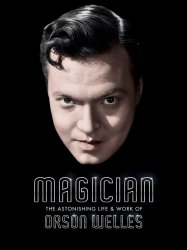 , 1h35
, 1h35Origin USA
Genres Documentary
Themes Films about writers, Documentary films about business, Documentary films about the film industry
Actors Orson Welles, Peter Bogdanovich, Julie Taymor, Steven Spielberg, Martin Scorsese, Elvis Mitchell
Roles Self - Filmmaker
Rating68%





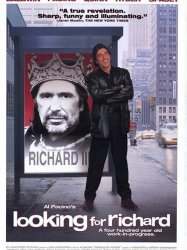
Looking for Richard (1996)
, 1h52Directed by Al Pacino
Origin USA
Genres Drama, Science fiction, Thriller, Documentary
Themes Films about writers, Films about television, Théâtre, Documentary films about business, Documentary films about the film industry, Documentaire sur une personnalité, Political films, Films based on plays, Films based on works by William Shakespeare, Films about royalty
Actors Alec Baldwin, Al Pacino, Aidan Quinn, Winona Ryder, Kevin Spacey, Kevin Conway
Roles Self / Interview
Rating72%





Al Pacino vise à présenter la vision populaire de l'œuvre de l'écrivain William Shakespeare, à travers des séquences filmées de la pièce de théâtre Richard III, jouées par une troupe d'acteurs (Al Pacino interprétant dans ces scènes le rôle de Richard III), et des interviews d'acteurs, de spécialistes du théâtre, ou d'inconnus interrogés dans les rues new-yorkaises. Il y a juxtaposition des scènes de répétitions de la pièce de Shakespeare Richard III et des parties où il est question de la mise en scène.
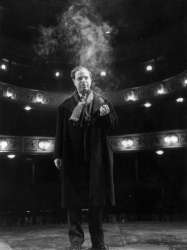
The Benefit of the Doubt (1967)
, 1hOrigin United-kingdom
Genres Documentary
Themes Documentary films about war, Documentary films about historical events, Political films
Actors Peter Brook, Michael Williams, Glenda Jackson, Ian Hogg
Roles Self
Rating67%





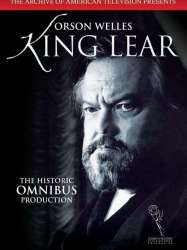
King Lear (1953)
, 1h13Directed by Peter Brook
Origin USA
Genres Drama, Historical
Themes Political films, Films based on plays, Films based on works by William Shakespeare, Films about royalty
Actors Orson Welles, Natasha Parry, Alan Badel, Arnold Moss, Bramwell Fletcher, Beatrice Straight
Roles Self – Director
Rating3%





Director
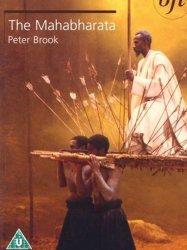
The Mahabharata (1989)
Directed by Peter Brook
Origin Portugal
Genres Drama, War
Themes Films about music and musicians, Films based on mythology, Films about religion, Musiques du monde, Musical films, Mythologie hindoue
Actors Andrzej Seweryn, Georges Corraface, Vittorio Mezzogiorno, Bruce Myers, Mallika Sarabhai, Yoshi Oida
Rating80%





In general terms, the story involves epic incidents between two warring families, the Pandavas (representing the good side) and the Kauravas (representing the bad side). Both sides, being the offspring of kings and gods, fight for dominion. They have both been advised by the god Krishna to live in harmony and abstain from the bloody lust for power. Yet their fights come to threaten the very order of the Universe. The plot is framed by a dialogue between the Brahmin sage Vyasa and the Hindu deity Ganesha, and directed towards an unnamed Indian boy who comes to him inquiring about the story of the human race.
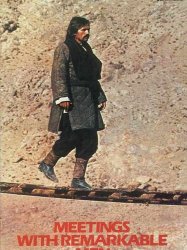
Meetings with Remarkable Men (1979)
, 1h48Directed by Peter Brook
Origin USA
Genres Drama, Biography
Themes Films about music and musicians, Philosophie, Musiques du monde, Musical films
Actors Dragan Maksimović, Terence Stamp, Martin Benson, Athol Fugard, Colin Blakely, Warren Mitchell
Rating71%





La vie de Georges Gurdjieff, de sa jeunesse jusqu'à ses voyages initiatiques à la recherche de la Sagesse. On suit sa quête spirituelle en Asie centrale, notamment à Boukhara, et dans le désert de Gobi, où il découvre différentes disciplines comme la musique et la danse lui permettant encore de progresser.
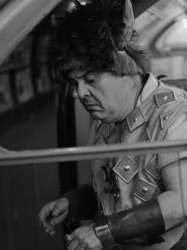
Ride of the Valkyrie (1979)
Directed by Peter Brook
Genres Comedy
Actors Zero Mostel, Julia Foster, Frank Thornton
Rating58%





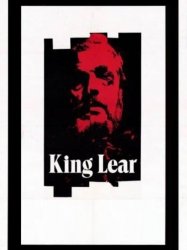
King Lear (1971)
, 2h17Directed by Peter Brook
Origin United-kingdom
Genres Drama
Themes Théâtre, Political films, Films based on plays, Films based on works by William Shakespeare, Films about royalty
Actors Paul Scofield, Irene Worth, Cyril Cusack, Susan Engel, Alan Webb, Søren Elung Jensen
Rating71%






Tell Me Lies (1968)
Directed by Peter Brook
Genres Drama, Musical theatre, Documentary
Themes Politique, Political films
Actors Mark Jones, Henry Woolf, Glenda Jackson, Ian Hogg, Patrick Wymark, Eric Allan
Rating67%





A young couple, Bob Lloyd and Pauline Munro see a photo in a magazine of a baby mutilated by napalm and it changes their lives. They ask is London aware, is London concerned?

Marat/Sade (1967)
, 1h56Directed by Peter Brook
Origin United-kingdom
Genres Drama, Historical, Musical
Themes Films about writers, Political films, Films based on plays, French Revolution films
Actors Patrick Magee, Ian William Richardson, Michael Williams, Clifford Rose, Glenda Jackson, Freddie Jones
Rating74%





À l'asile de Charenton, le marquis de Sade met en scène une pièce sur la mort de Jean Paul Marat, en utilisant les patients comme acteurs.
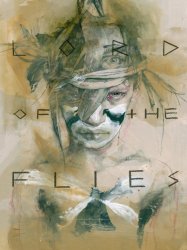
Lord of the Flies (1963)
, 1h32Directed by Peter Brook
Origin United-kingdom
Genres Drama, Science fiction, Thriller, Social science fiction, Adventure
Themes L'adolescence, Films about education, Films about children, Seafaring films, Transport films, Films based on Robinson Crusoe, L'enfance marginalisée, Political films, Dystopian films, Films about school violence
Actors James Aubrey, Nicholas Hammond, Hugh Edwards
Rating68%





A group of British schoolboys, living in the midst of a war, are evacuated from England. Their airliner is shot down by briefly glimpsed fighter planes and ditches near a remote island.
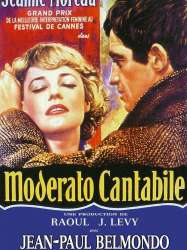
Seven Days… Seven Nights (1960)
, 1h30Directed by Peter Brook
Origin Italie
Genres Drama, Romance
Themes Films about music and musicians, Films about sexuality, Films about classical music and musicians
Actors Jeanne Moreau, Jean-Paul Belmondo, Pascale de Boysson, Jean Deschamps, Didier Haudepin, Colette Régis
Rating68%





Dans une ville portuaire, une jeune mère bourgeoise, Anne Desbaresdes, rencontre un ancien ouvrier de l'usine que gère son mari. Par le biais de conversations entre oisifs, qui s'étirent lors de fins d'après-midi dans un café, Anne confronte sa vie rangée à une passion basée sur un idéal développé tout au long du film. Le récit s'ouvre en effet sur un meurtre passionnel sur lequel l'héroïne va ressasser des questions nécessairement sans réponse.

The Beggar's Opera (1953)
, 1h34Directed by Peter Brook
Origin United-kingdom
Genres Historical, Musical, Crime
Themes Films about music and musicians, Théâtre, Musical films, Films about capital punishment, Films based on plays, Films based on operas
Actors Laurence Olivier, Dorothy Tutin, Hugh Griffith, George Rose, Stuart Burge, Stanley Holloway
Rating60%





In the 1700s, a beggar is tossed into London's Newgate jail, along with a pile of papers upon which his unfinished opera is scribbled. The beggar boasts to the other prisoners that his opera, unlike others of the day, is about a real person, the dashing highwayman Captain Macheath, who, dressed in a red coat, holds off the world with a pistol in each hand, seduces women with five notes of a tune, and generally leaps from misfortune. To the beggar's disappointment, the other prisoners point out that his hero Macheath is among them, in irons and behind bars, and Macheath, who is scheduled to be executed the next morning, admits that there is "no arguing with reality." Taking the first page of the opera, Macheath begins singing, and the beggar, encouraged by Macheath's good voice, urges him to continue, until the following story, the beggar's opera, is sung for the prison inmates: While riding to London, feeling merry and free, Macheath robs a carriage, and steals a kiss and a locket from a maiden. Later, in London, Macheath's wife, Polly Peachum, pines for him. Polly's parents, shopkeepers Mr. Peachum and his wife, are scandalized to learn from their employee Filch that Polly has secretly married the highwayman. To make the best of the situation, as they are always eager to make money, they urge her to lure Macheath into a trap and collect the reward for his capture. Meanwhile, outside of town, Macheath encounters a carriage ridden by Newgate's jailor Mr. Lockit, Lockit's daughter Lucy and Mrs. Trapes, whom Lockit is wooing. Lucy, who met Macheath when he was once imprisoned, scolds him for taking her virtue without making good on his promise to wed. When Macheath rides off, Mrs. Trapes suggests that Lucy betray him for the reward and give the money to her father. Later, during a tryst in a hayloft, Polly warns Macheath that her parents are mounting an ambush. Macheath escapes with Polly's help after a swashbuckling fight, then hides in a back room of a tavern, where he is unable to resist socializing with the prostitutes, whom he considers friends. However, prostitute Jenny Diver has been bribed by Peachum and Lockit to betray him, and with the help of her colleagues, Macheath is soon captured. From his jail cell, Macheath urges Lucy to steal the jail keys and set him free, promising to marry her in return, but then Polly shows up and he is forced to introduce the women to each other. During the night, Lucy steals the keys and releases him, but later Polly sneaks back and, finding Macheath gone from the cell, screams in anguish without thinking, thus drawing attention to his escape. Meanwhile, Macheath disguises himself in the stolen cape and gloves of a lord and slips into a gaming house to avoid making good his promise to unite with Lucy. However, the proprietor recognizes the cape and alerts Lockit and Peachum about the impostor wearing it. Back at the jail, Polly is accused of freeing Macheath and is locked in Lucy's room, where Lucy, after losing track of Macheath, attempts to drug her. When they hear the recaptured Macheath being returned to prison, Lucy and Polly proceed to Macheath's cell and demand that he choose between them. He refuses, as he will soon be hanged and sees no reason to disappoint either of them. The next morning, riding atop his coffin as it is carted through the streets to the gallows, Macheath waves farewell to the friendly crowd that has gathered to see him off. At the gallows, after kissing both Lucy and Polly goodbye, Macheath is blindfolded and awaits his fate, and the opera comes to its incomplete end. The real Macheath, who is still in the jail, protests that he should not have to hang twice. After pondering the complaint, the beggar agrees and yells for Macheath's reprieve. The rest of the prisoners join in the chant and mob the turnkey, who comes to investigate the ruckus, allowing Macheath to escape. The highwayman steals a horse from the cart containing his coffin and when safely out of London, sings that his freedom has been returned because of a beggar's opera.

King Lear (1953)
, 1h13Directed by Peter Brook
Origin USA
Genres Drama, Historical
Themes Political films, Films based on plays, Films based on works by William Shakespeare, Films about royalty
Actors Orson Welles, Natasha Parry, Alan Badel, Arnold Moss, Bramwell Fletcher, Beatrice Straight
Rating3%





Scriptwriter

The Mahabharata (1989)
Directed by Peter Brook
Origin Portugal
Genres Drama, War
Themes Films about music and musicians, Films based on mythology, Films about religion, Musiques du monde, Musical films, Mythologie hindoue
Actors Andrzej Seweryn, Georges Corraface, Vittorio Mezzogiorno, Bruce Myers, Mallika Sarabhai, Yoshi Oida
Roles Writer
Rating80%





In general terms, the story involves epic incidents between two warring families, the Pandavas (representing the good side) and the Kauravas (representing the bad side). Both sides, being the offspring of kings and gods, fight for dominion. They have both been advised by the god Krishna to live in harmony and abstain from the bloody lust for power. Yet their fights come to threaten the very order of the Universe. The plot is framed by a dialogue between the Brahmin sage Vyasa and the Hindu deity Ganesha, and directed towards an unnamed Indian boy who comes to him inquiring about the story of the human race.
 Connection
Connection

